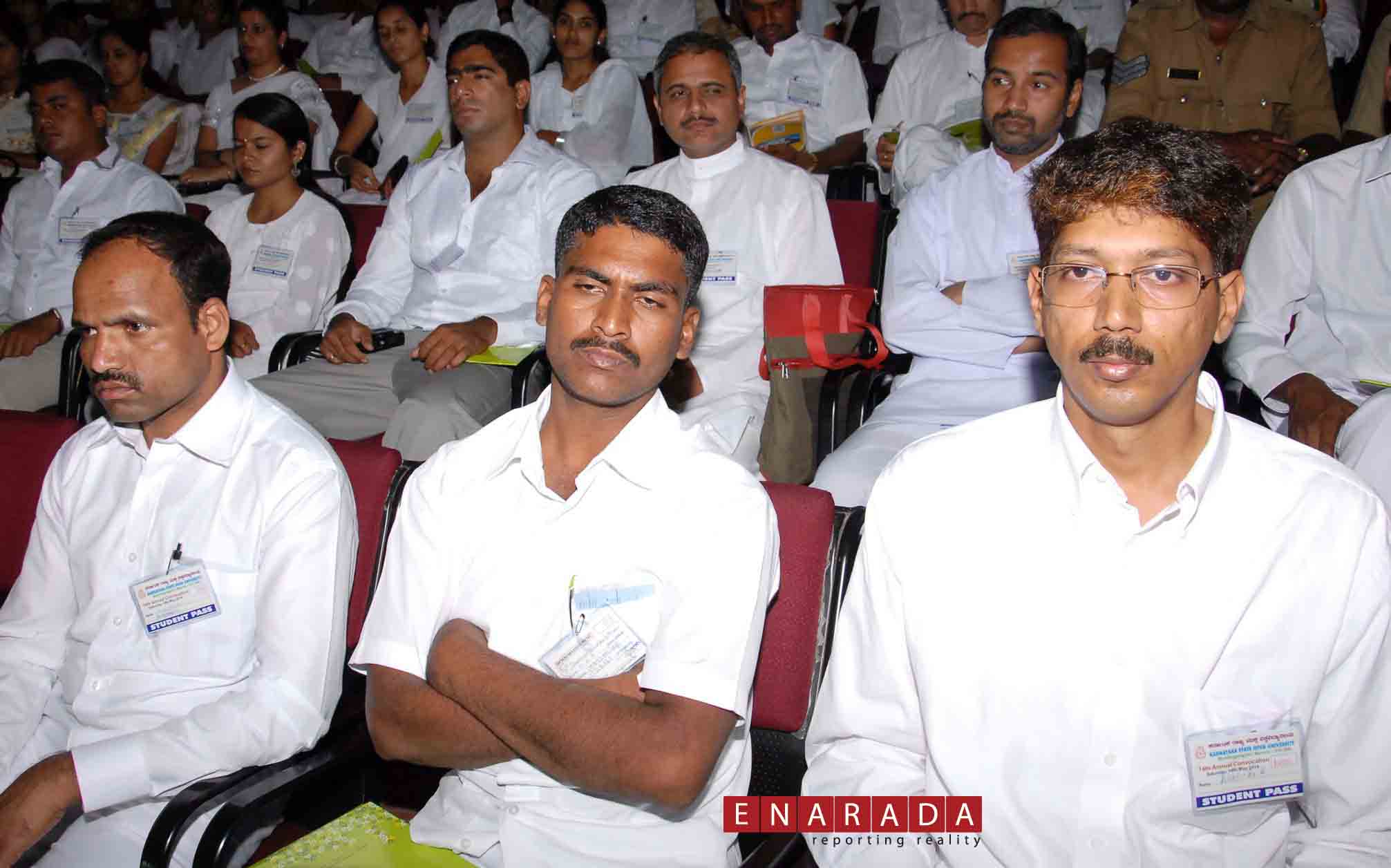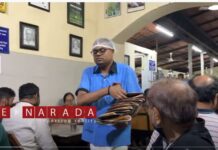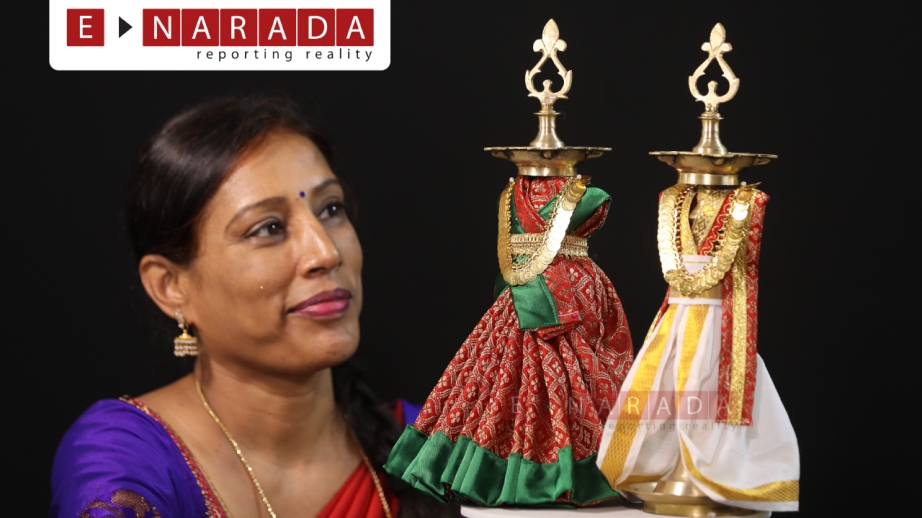

ENARADA, Mysore, May 10, 2014
The 14th annual KSOU Convocation witnessed three jail inmates awarded with post-graduation degrees. One among them has secured 6th Rank.
A convict of Bangalore Central Prison who is in jail for the last 14 years, being conferred with Master of Library and Information Science (MLISc) degree.
A. Arvind, an inmate serving life sentence at Bangalore’s Parappana Agrahara Central Jail, has secured 6th Rank in the annual examination conducted by the University. This was the third degree for him. Earlier, he has completed MA in Sociology and Post Graduate Diploma in Mass Communication & Journalism from KSOU.
A product of Maharaja’s College here, he is now pursuing Diploma in Information Technology from the KSOU.
Two other convicts, Satish Gowda, who is serving life imprisonment and K.S. Delux, who is serving 10 years imprisonment, at Mysore Central Jail, were conferred with MA (Political Science) degrees.
All convicts were seated along with other candidates waiting to receive their degrees. Two constables had escorted the trio to the Senate Bhavan where the convocation was held.
The inmates thanked Additional Director General of Police (Prisons) K.V. Gagandeep and Deputy Inspector General of Police (DIG) Vishwanathaiah for providing them an opportunity to enrol for the courses.
When contacted, Mysore Prison Chief Superintendent Jayasimha said 22 prison inmates, including two women, have enrolled for various courses offered under distance education mode by the KSOU. They have been appearing for examinations at the university’s centre on the prison campus.
“The government is bearing the course fee and encouraging more inmates to enrol,” he said. Inmates from Hindalga Prison in Belgaum also come to the Mysore central prison KSOU centre to appear for the examination, he said, adding that the Prisons Department has extended all necessary support so that the inmates get educated.
“If inmates get educational qualifications, they can earn a livelihood after their release,” he opined.
Prof. Anand Teltumbde concerns about commercialisation of Higher Education
Renowned management professional and human right activist Prof. Anand Teltumbde, today expressed his concern about steep declining of quality in education due to privatization and commercialization of higher education.
Speaking at the 14th annual convocation of the Karnataka State Open University (KSOU), he said that hype has been created among gullible people that private institutes provide better education.
“The private institutes have been around for years but none could produce an IIM, Ahmadabad, or an IIT” Prof. Anand Teltumbde said.
As education is a 50 billion dollars industry, the government has freed FDI into education sector and many bills are pending that will further create a mess in our higher education, he added.
The entire rural areas are cut off from quality education. The villages in early decades of our independence contributed brilliant people to this nation. Most statesmen and high ranking people had come from village only because of quality education and hard work characteristic of rural life, he pointed out.
But today, it was theoretically impossible for a boy or girl from villages, where still nearly 70 percent of people live, to come out of the village and reach a reputed institution of higher education. All talk of reservation and others has become meaningless, as they have become a monopoly of the urban beneficiary class, leaving nothing for the real needy form the rural areas, he observed.



